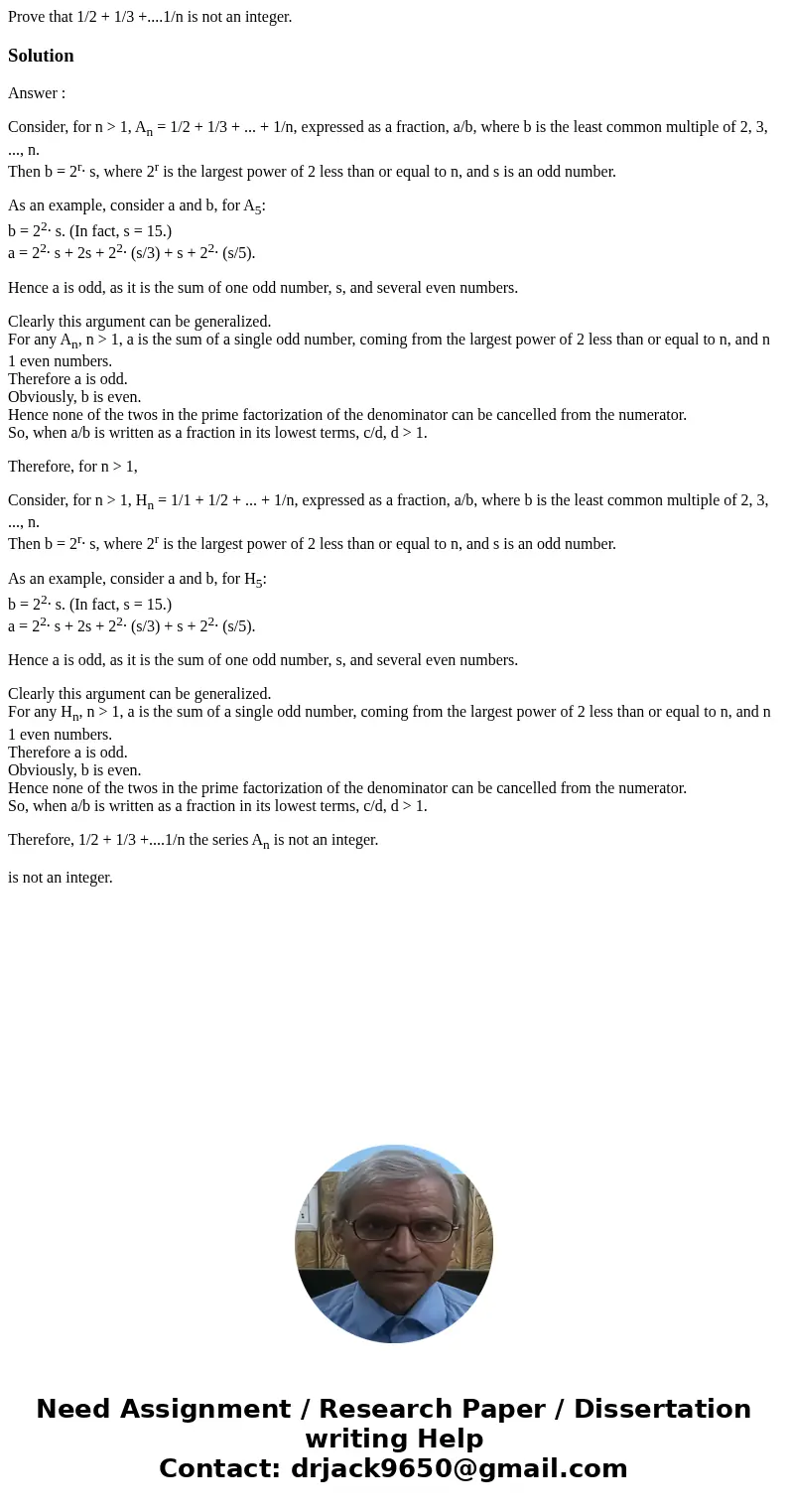Prove that 12 13 1n is not an integerSolutionAnswer Consid
Prove that 1/2 + 1/3 +....1/n is not an integer.
Solution
Answer :
Consider, for n > 1, An = 1/2 + 1/3 + ... + 1/n, expressed as a fraction, a/b, where b is the least common multiple of 2, 3, ..., n.
Then b = 2r· s, where 2r is the largest power of 2 less than or equal to n, and s is an odd number.
As an example, consider a and b, for A5:
b = 22· s. (In fact, s = 15.)
a = 22· s + 2s + 22· (s/3) + s + 22· (s/5).
Hence a is odd, as it is the sum of one odd number, s, and several even numbers.
Clearly this argument can be generalized.
For any An, n > 1, a is the sum of a single odd number, coming from the largest power of 2 less than or equal to n, and n 1 even numbers.
Therefore a is odd.
Obviously, b is even.
Hence none of the twos in the prime factorization of the denominator can be cancelled from the numerator.
So, when a/b is written as a fraction in its lowest terms, c/d, d > 1.
Therefore, for n > 1,
Consider, for n > 1, Hn = 1/1 + 1/2 + ... + 1/n, expressed as a fraction, a/b, where b is the least common multiple of 2, 3, ..., n.
Then b = 2r· s, where 2r is the largest power of 2 less than or equal to n, and s is an odd number.
As an example, consider a and b, for H5:
b = 22· s. (In fact, s = 15.)
a = 22· s + 2s + 22· (s/3) + s + 22· (s/5).
Hence a is odd, as it is the sum of one odd number, s, and several even numbers.
Clearly this argument can be generalized.
For any Hn, n > 1, a is the sum of a single odd number, coming from the largest power of 2 less than or equal to n, and n 1 even numbers.
Therefore a is odd.
Obviously, b is even.
Hence none of the twos in the prime factorization of the denominator can be cancelled from the numerator.
So, when a/b is written as a fraction in its lowest terms, c/d, d > 1.
Therefore, 1/2 + 1/3 +....1/n the series An is not an integer.
is not an integer.

 Homework Sourse
Homework Sourse